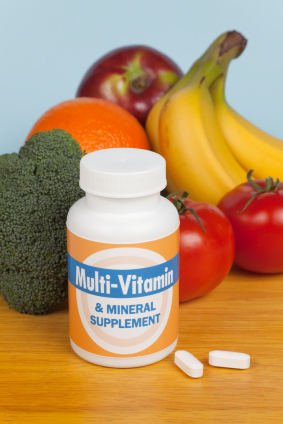Water Soluble Vitamins
Water Soluble Vitamins
By: Dr. George Obikoya
The water-soluble vitamins, excluding vitamin C, popularly are termed the B-complex vitamins. There are eight of them, namely; B1 (thiamine), B2 (riboflavin), B6 (pyridoxine), niacin (nicotinic acid), B12, folic acid, pantothenic acid, and biotin. The water-soluble vitamins, inactive in their so-called free states, must be activated to their coenzyme forms. B-complex vitamins and vitamin C are water-soluble vitamins that are not stored in the body and must be replaced each day, preferably through a high-quality liquid multivitamin..
The water-soluble vitamins are absorbed in our intestine, pass directly to the blood, and are carried to the tissues in which they will be utilized. Vitamin B12 requires a substance known as "intrinsic factor for absorption".
Water-soluble vitamins usually are excreted in the urine on a daily basis. Thiamine (B1), riboflavin (B2), pyridoxine (B6), ascorbic acid (C), pantothenic acid, and biotin appear in urine as free vitamins Tissue storage capacity of water soluble vitamins is limited and, as the tissues become saturated, the rate of excretion increases sharply. This keeps us from overdosing but this is also why we need to take these vitamins daily. Unlike the other water-soluble vitamins, however, vitamin B12 is excreted solely in the feces. Some folic acid and biotin is also normally excreted in this way. Although fecal excretion of water-soluble vitamins (other than vitamin B12, folic acid, and biotin) occurs, their source probably is the intestinal bacteria, which synthesize the vitamins, rather than vitamins that we have eaten and used.
The effects of the water-soluble vitamins are obvious in many parts of the body. They act as coenzymes to help the body obtain energy from food. They also are important for normal appetite, good vision, healthy skin, healthy nervous system and red blood cell formation.
Vitamin B deficiency leads to beriberi, pellagra and pernicious anemia. Alcoholics are especially prone to thiamin deficiency because they hardly eat good food or any at all. You can also become deficient in vitamin B if you eat "polished" rice, that is, removing its outer layer, and end up with thiamin deficiency, or beriberi.
Like the other vitamins, the body needs vitamin C to keep it in good working condition. Also called ascorbic acid, vitamin C helps hold body cells together, aids in wound healing, assists in bone and tooth formation, and strengthens the blood vessel walls. Vitamin C is also crucial to the functioning of our immune system, and it helps improve the absorption and utilization of iron. Vitamin C also helps prevent scurvy.
Our bodies cannot make vitamin C and our capacity to store vitamin C is limited. We must, therefore, take in some daily. You are likely to need even more vitamin C if you are under stress, use oral contraceptives, have a healing wound, if you are pregnant or a child, have fever or infections, and if you smoke cigarettes. Megadoses of vitamin C can be help prevent or possibly even cure a case of the common cold. Vitamin C also serves as a powerful antioxidant. It works synergistically with vitamin E as a free-radical scavenger. Studies suggest that vitamin C may reduce the risk of certain cancers, heart disease and cataracts. Recent studies also suggest that the combination of vitamins C and E in high doses can help reduce the risk of developing Alzheimer's disease. Vitamins C and E can both be found in a high-quality liquid multivitamin.
Remember that water-soluble vitamins, the B-complex group and vitamin C, dissolve in water, are not stored and they are eliminated in urine. We need a continuous supply of them in our diets to ensure proper health and nutrition.
A good multivitamin is the foundation of health and nutrition. Take a look at our scientific reviews of many of the popular brands for factors such as ingredients, areas of improvement, quality level, and overall value. If you are looking for a high quality liquid multivitamin, we suggest that you take a look at the Multivitamin Product Comparisons.

